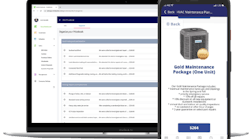You have people working for you. You count on them to get the job done, because the success of your business depends, in large part, on their performance. One of the most important — and often unpleasant — parts of your job is to ensure that your people do their jobs well.
Most people do a good job most of the time. A few of them cause occasional problems. All of them probably screw up every once in a while. You need to handle problems and screw ups. You might say, “I don't have the time. I have too many other things to do — budgets, reports, dealing with customers, etc.” Nothing could be further from the truth. You have to get things done through your people. You can't do it all yourself. You have to make time to fix performance problems.
In more than 30 years as a management consultant and executive coach, I have had one type of request for service more than any other: fixing performance problems. While I have assisted many business owners and managers in fixing these problems, I prefer to teach them how to do it themselves and not rely on me. Business today is competitive. You have to get the best out of the people who work for you.
Performance problems vary from individual to individual and situation to situation. Just as no two problems are exactly the same, there is no silver bullet, no one best way of fixing them. On the other hand, I have found that most performance problems fall into one of 11 categories. You can use a similar approach to fix problems that fall into a specific category.
There's no one fix to all performance problems. Each one is unique to the individual and situation. In this article, I'll describe each of the 11 categories, explain the reasons behind them and then suggest what to do to fix performance problems that fall into each category. When you finish reading, you should have a good idea of how to identify the 11 most common types of performance problems, why they happen and how to fix them.
Problem 1: The people who work for you don't know what they are supposed to do.
Why This Happens: You have not set and communicated clear expectations and standards. You have not reinforced the importance of the expectations and standards you've set.
Solution: Explain exactly what you expect them to do and how they need to do it. Clearly describe what good performance looks like.
Problem 2: The people who work for you don't know why they should do what they are supposed to do.
Why This Happens: You haven't explained the business reasons for your expectations and standards. You haven't explained the personal benefits your people will see if they meet your expectations and standards.
Solution: Explain the reasoning behind performance standards. Make sure people understand why they are being asked to do what they are supposed to do.
Problem 3: The people who work for you don't know how to do what they are supposed to do.
Why This Happens: You make incorrect assumptions about the knowledge and skill level of the people who work for you. You've haven't trained your people well. People haven't used a specific skill in some time. Job requirements have changed. People have lapsed into bad habits and have forgotten the correct way of doing things.
Solution: Teach people how to do the job correctly: 1) Tell them how to do it. 2) Show them how to do it. 3) Observe them as they attempt to do it. 4) Reinforce what they do well. 5) Redirect what they do poorly or incorrectly. Make sure they can correctly do what they need to do.
Problem 4: The people who work for you think your way does not work or that their way is better.
Why This Happens: Today's employees think for themselves. They are more likely to challenge instructions that don't make sense to them. You don't deal with employee challenges and concerns in an open and respectful manner.
Solution: Listen to their concerns. Use their ideas if possible. Make sure they accept what they need to do and how they should do it.
Problem 5: The people who work for you think other tasks and activities are more important.
Why This Happens: Most jobs have multiple, competing priorities. Often, people focus on one task — to the exclusion (and expense) of others. People sometime become victims of the “tyranny of the or,” i.e., “What do you want, speed or quality? I can't do both.” “What's more important, making sales calls or filling out reports? I can't do both.”
Solution: Don't accept the “tyranny of the or.” Teach people the “genius of the and.” Hold everyone responsible for meeting or exceeding all of the standards associated with the job.
Problem 6: The people who work for you think that they are performing in an acceptable manner.
Why This Happens: You don't provide regular and adequate performance feedback. In the absence of feedback, people think they are doing a good job.
Solution: Provide everyone who works for you with honest feedback on how well they're doing on a regular basis.
Problem 7: You reward nonperformance.
Why This Happens: You don't hold people accountable for meeting job expectations. Employees are allowed to avoid difficult or unpleasant jobs they do poorly. You give these tasks to others. You promote or transfer people to get them out of your work group. You give problem performers a lot of attention.
Solution: Hold people responsible for doing their jobs. Don't clean up people's messes for them. Keep the workload even and balanced. Adopt the DBMAPWOAS (Don't Bring Me A Problem Without A Solution) philosophy. Fix problems — don't promote or transfer them.
Problem 8: Good performance feels like punishment.
Why This Happens: You give good performers (the people you trust and rely on) more work and the most difficult and unpleasant jobs. You don't monetarily reward high performers, using the excuse “it's the system.” You take your high performers for granted. You don't listen to your high performers.
Solution: Don't punish your good performers by overworking them. Don't use the excuse “it's the system” to punish your good performers. Listen to your people when they suggest ways to handle problems. Don't make their work more difficult by ignoring their suggestions.
Problem 9: You don't reward good performance.
Why This Happens: You are uncomfortable paying compliments. You assume people know you think they're doing a good job. You think that money is the only way to reward somebody.
Solution: Money is not the only way to reward good performance. Tune into WII- FM (What's In It For Me). People continue to do the things for which they get rewarded. Reward good performance. Be timely. Be specific. Be sincere. Explain how the good performance fits into the big picture.
Problem 10: You sanction poor performance.
Why This Happens: You don't like to punish employees who are not doing a good job.
Solution: Most people will perform well as long as they know what to do and how to do it. The great majority of people will need little more than a gentle nudge (a conversation about how they are failing to meet expectations) to get them back on track. When a nudge doesn't work, a kick in the butt (an explicit statement of the potential negative consequences) usually does the trick. When a kick in the butt doesn't work, a 2X4 to the head (the experience of negative consequences) might be necessary. Deliver negative consequences when you must. Take it slowly, step by step. Don't use a kick in the butt or a 2X4 to the head when a gentle nudge will do.
Problem 11: The people who work for you encounter obstacles they cannot control.
Why This Happens: There are organizational policies, procedures and practices that prevent people from performing at a high level. People don't realize they have the wherewithal to remove or overcome an obstacle. People lack the skills necessary to do what it takes to perform well.
Solution: Make it easy for your people to do their jobs. Identify and change policies, procedures and practices that are, in reality, obstacles to good performance. Listen to your people when they point out something that needs changing so they can do their job better. Make sure people have the skills and tools to do a good job.
There you have it: 11 types of performance problems, why they happen and what to do about them. Hopefully, you have some new knowledge. But as I tell audiences when I speak, “knowing's not enough.” Here's hoping you'll take this knowledge and use it.
Bud Bilanich has a reputation as the Common Sense Guy. He earned his Ph.D. from Harvard University and offers common sense solutions to tough business problems. Contact Bud at 303/393-0446 or Bud@BudBilanich. com. You can also visit www.BudBilanich.com or read his blog at www.CommonSenseGuy.com.





